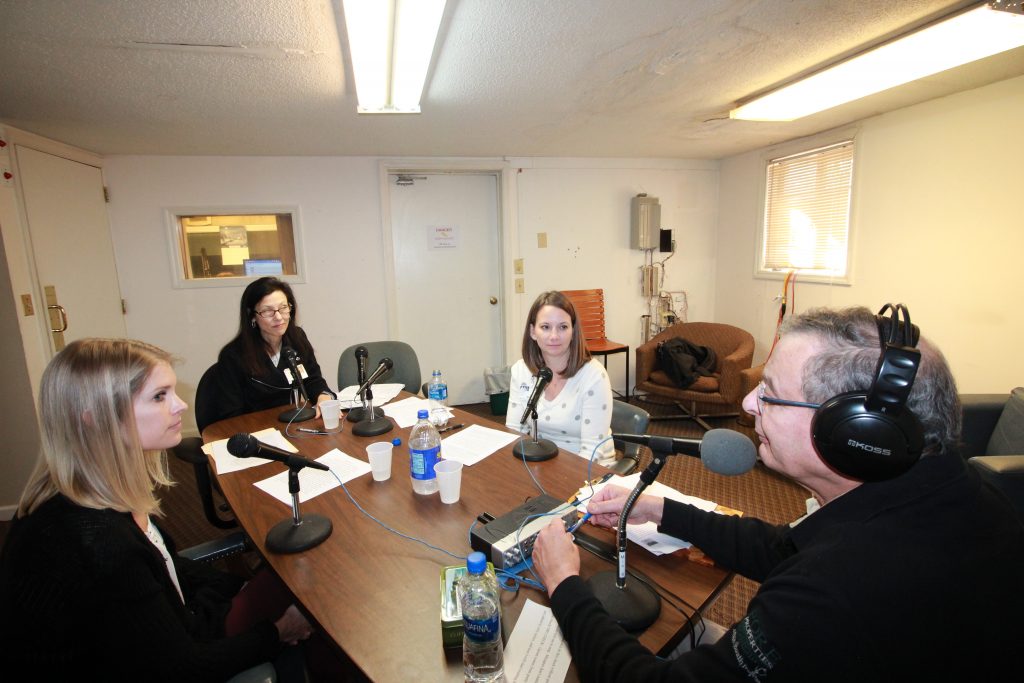https://www.pinehurstmedical.com/wellness-clinic/
The Wellness Center at Pinehurst Medical Clinic was started in 2015.
With 11 health coaches and counselors, the Wellness Center offers an added benefit to patients of the Pinehurst Medical Clinic.
Wellness Program & Quality Manager, Melissa Kuhn, MA, CCP, CTTS, HED, Social & Behavioral Counselor, Marcy Simpson, LCSW & Medical Nutrional Therapist and Diabetes Self Management Educator, Courtney Buck, MS, RD, LDN discuss a wide range of issues.
The Annual Wellness visit is a benefit for Medicare patients. This started in 2011. The Center for Medicare and Medicaid Services (CMS) has researched the important role that preventative assessments and screenings make in our health along with the role that health care providers play in educating patients about these services. The intent in this service is to remove barriers and provide opportunity for them to receive recommended preventative services that will support a healthy lifestyle. The Annual Wellness Visit is appropriate for people in all stages of health. While there are certain requirements of the visit, we tailor these to meet the patient where they are, identifying resources and setting goals that are realistic and relevant to the individual.
Health coaches are trained to partner with individuals to help improve health by facilitating behavior change. They work in collaboration with the patient exploring and providing information, resources and referrals as appropriate and needed. Health coaches provide support and guidance while empowering the individual to identify the priorities that will ultimately lead to improved health.
At the beginning of the visit, the patient’s vitals are taken, including ht, wt and BP. From this information, a patient’s BMI, or Body/Mass Index is calculated. We also update the patient’s medical records with the current medications/supplements. Immunization records are updated, such as flu and pneumonia vaccines. There are screenings for depression and anxiety, risk for falls, and cognitive functioning. Nutrition, exercise, and sleep habits are assessed, in addition to home safety issues and the patient’s social/emotional support system.
These screenings promote disease prevention, early detection and lifestyle modifications that support a healthier lifestyle. We work with the patient to create an individualized lifestyle plan and set goals in order to meet it over the next year.
- Example – if a patient’s BMI is over the recommended target range for healthy (18.5 – 24.9), a discussion with the patient can occur supported with handouts that engage the patient in reasons for changing habits such as diet and exercise that will impact his/her weight. Depending on the patient’s interest in change, we can recommend other programs to help meet this goal.
- Example – if a person’s depression assessment (using an evidenced-based tool) displays several symptoms contributing to depressed mood, a conversation can occur in which resources such as counseling can be offered. We take the depression scores very seriously as research shows that 45% of individuals who die by suicide, especially older adults, have visited their primary care physician within a month of their death.
We also offer a program called Intensive Behavioral Therapy for patients who have a BMI 30 and above. This is the weight management counseling referred to earlier. During the AWV, the health coach can make a referral to this program and even schedule the patient for the initial sessions. The program starts with more frequent visits that gradually have more time between each session. We don’t follow any specific diet plan, but rather work with each person to determine what works best for them and is realistic within their lifestyle. We focus on nutrition, exercise, stress and emotional attachments to food.




















